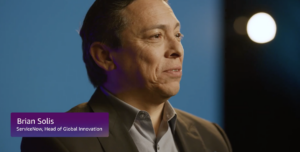
by Adi Gaskell, Cybernews
Employee engagement has sunk to a 10-year low, as only around a third of American employees are engaged, with this figure barely budging over the past decade, according to data from Gallup.
I’ve written in the past about the relative optimism (or pessimism) with which workers and leaders are viewing the impact AI is likely to have on the workplace, and there is a clear distinction between those who think AI will make working life better and those who believe it will strip work of meaning (if it doesn’t strip us of work entirely).
Reshaping the workplace
Research from the University of Pittsburgh explores the topic in more depth. As before, the study strikes a generally positive tone, suggesting that exposure to AI hasn’t had a negligible impact on either our job satisfaction or our mental health.
Indeed, the researchers go as far as to suggest that using AI may actually be making us happier, albeit only by a small amount. It’s a finding shared by recent research from Denmark’s Happiness Research Institute, with this boost generally caused by the parallel between the adoption of AI and optimism about the future.
The Pittsburgh researchers looked at two decades’ worth of data from the German Socio-Economic Panel, which allowed them to examine how people feel in professions that are heavily exposed to AIcompared to those with less exposure.
“Public anxiety about AI is real, but the worst-case scenarios are not inevitable,” the researchers say.
“So far, we find little evidence that AI adoption has undermined workers’ well-being on average. If anything, physical health seems to have slightly improved, likely due to declining job physical intensity and overall job risk in some of the AI-exposed occupations.”
A nuanced picture
The researchers urge a note of caution, as their analysis looked primarily at AI exposure on a task level. They acknowledge that when workers self-report their level of AI exposure, this corresponds with a slight dip in job satisfaction.
What’s more, they also acknowledge that many of the respondents were older workers, so not those perhaps most vulnerable to automation, and the study also only covered the initial phases of the technology’s rollout in Germany.
Moreover, the study found that while there were no significant average effects on job satisfaction, life satisfaction, or mental health, there were small improvements in self-rated physical health and satisfaction with health, particularly among lower-educated workers. This likely stems from a reduction in the physical demands of certain jobs, as AI systems increasingly take on repetitive or strenuous tasks.
There was also a modest reduction in the number of hours people worked each week, though without corresponding decreases in income or employment rates.
Yet, despite these generally reassuring signals, the researchers caution that their findings reflect the early stages of AI adoption in Germany—a country with strong labor protections and a relatively measured pace of technological change. It remains to be seen how outcomes might differ in more fluid labor markets or among younger cohorts entering workplaces already saturated with AI.
“We may simply be too early in the AI adoption curve to observe its full effects,” they say. “AI’s impact could evolve dramatically as technologies advance, penetrate more sectors, and alter work at a deeper level.”
Looking forward
The importance of optimism was underlined by the futurist Brian Solis. He suggested that we reimagine our roles for a world dominated by AI, and recommended being proactive rather than reactive. This process should also involve looking at our role systemically, reviewing both our own role and the wider industry.
He also reminds us to keep searching for purpose. Even in a world of mass unemployment, assuming there is some form of universal basic income to prevent widespread destitution, people will still need meaning to be happy. Work has traditionally played a big role in providing us with that meaning, and Solis argues that the happiest people will be those who can define their role in terms of its impact.
Read the full article here.





It’s fascinating to see the discussion around AI’s impact on job satisfaction. The contrasting views on whether AI will enhance or diminish work experiences are thought-provoking. The University of Pittsburgh and Denmark’s Happiness Research Institute studies shed light on the positive correlation between AI exposure and increased happiness at work, even if the effect is modest. It’s intriguing how optimism about the future, tied to AI geometry dash lite adoption, can contribute to overall well-being. I wonder how these findings will shape workplace policies and employee attitudes moving forward. How do you think organizations should leverage AI to maximize both productivity and job satisfaction?
Greatings.. Awesome good.
Using a Time Duration Calculator allows users to trust the accuracy of their duration results.